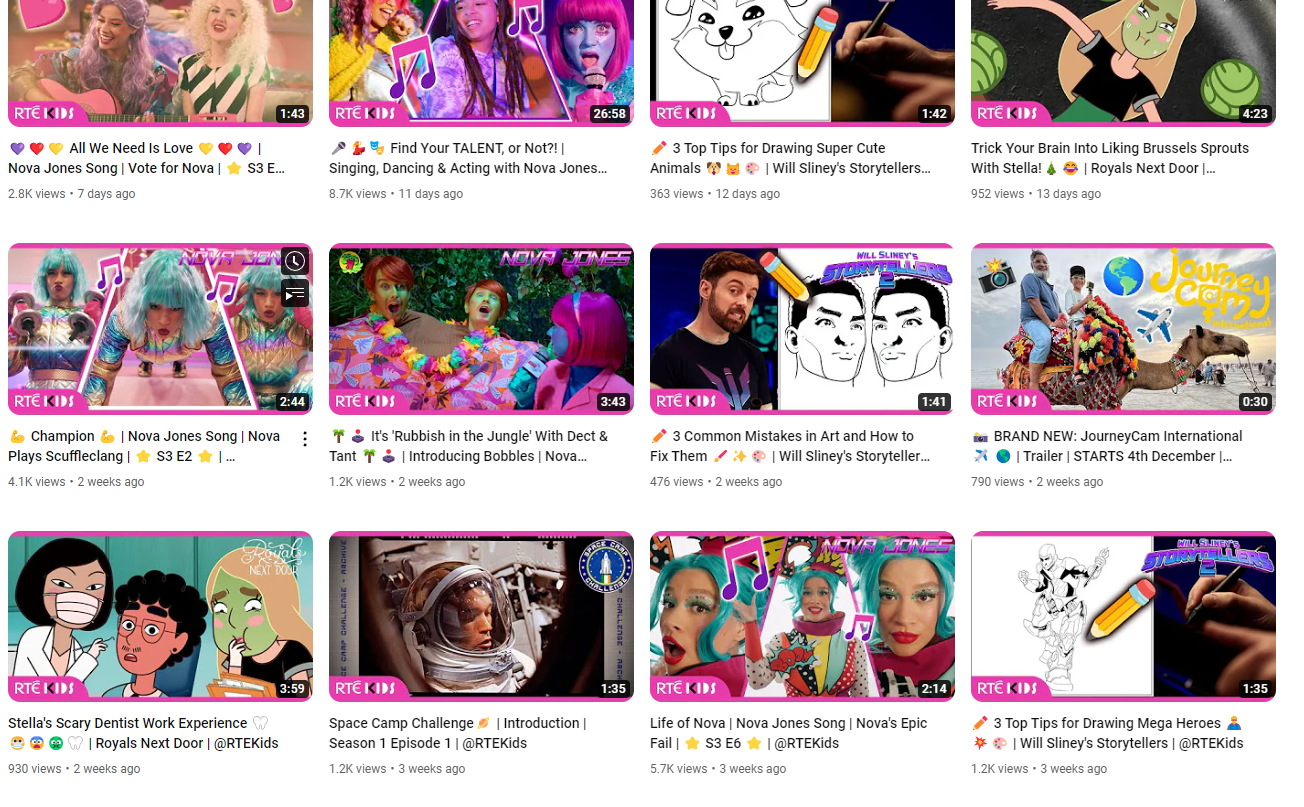The RTE Kids Youtube account has, at the time of writing, 49,000 followers. Over the past week, it has published four videos. These videos have been viewed, at the time of writing, 41 times, 37 times, and 842 times respectively.
These numbers are not an aberration: Looking through the list of RTE content published on the RTE kids youtube channel, the pattern is clear – hardly anybody is watching the stuff.

By itself, this would not be a major issue. Lots of people and organisations have relatively unsuccessful youtube channels. Youtube channels are free to set up, and they provide another way to share content. If nobody is watching, then no harm done, really.
The issue arises when you learn that the state broadcaster is offering to pay – and already has paid – €250,000 for people to operate the RTE kids Youtube channel:
RTÉ invites submissions, from suitably qualified Tenderers to supply YouTube Channel Management Services for the Young People’s Department of RTÉ. The successful contractor will be responsible for editing, producing and managing all elements around two RTÉ YouTube Channels. This tender is a repeat tender and these services have been purchased previously under other contracts.
According to the tender, the contract will run for two years and have a maximum value of €250,000, or €125,000 per year.
There are obvious questions to ask here: First, how is it necessary to hire in external staff to manage a Youtube account? The content for the Youtube account should, one might imagine, be already produced and ready to go based off RTE television programming. In an ordinary organisation, one might expect that the producers of kids TV programming would simply clip relevant parts from their programs and upload those to YouTube themselves as promotional videos.
If it is a question of promoting the YouTube account, two further issues arise: First, one might expect that all RTE social media platforms would come under the management of the in-house communications team, and that all YouTube and other social media platforms would be managed as a single operation across a single team. Managing one or two youtube accounts for children’s programming is hardly a full-time job for one person, let alone a person on €125,000 per year.
The second question is even if this was happening up until now, why it is continuing? A cursory look at the views on the account shows that it is not serving its apparent purpose of engaging the children of Ireland in a large-scale way. The low views on the channel indicate quite clearly that it is either underperforming, or, more likely, simply is not an essential RTE operation.
Since the national broadcaster is due to make €10m in cuts over the next while in order to deal with declining budgets, it would be entirely fair for many of those suffering the impact of those cuts to wonder why this particular quarter of a million euros has managed to survive the new war on excess, while their salaries and benefits have been cut.
Third, one might ask if the cuts go far enough: After all, if RTE can slice €10m in annual spend, and maintain a budget of this size for YouTube management, then one might convincingly argue that it is not at the pin of its collar at all: We can be reasonably certain that there is no other media organisation in Ireland spending money on this scale on subdivisions of its YouTube operation: Gript Media’s own YouTube channel, for example, has only 25,000 subscribers – just over half of what RTE kids can muster – but our content gets vastly more engagement and views. That channel is managed entirely in-house, by our own team, with no dedicated budget for content production or advertising. If we can outperform RTE without this kind of tender, then RTE can certainly do better for less.
By itself, €250,000 is not a big chunk of the RTE budget. But it is entirely indicative of the culture that remains inside the national broadcaster: It is still spending vast amounts of taxpayer cash, for very dubious returns. And for all the talk of reform, tenders like this indicate that the culture inside the organisation is as frivolous with cash as it ever was.